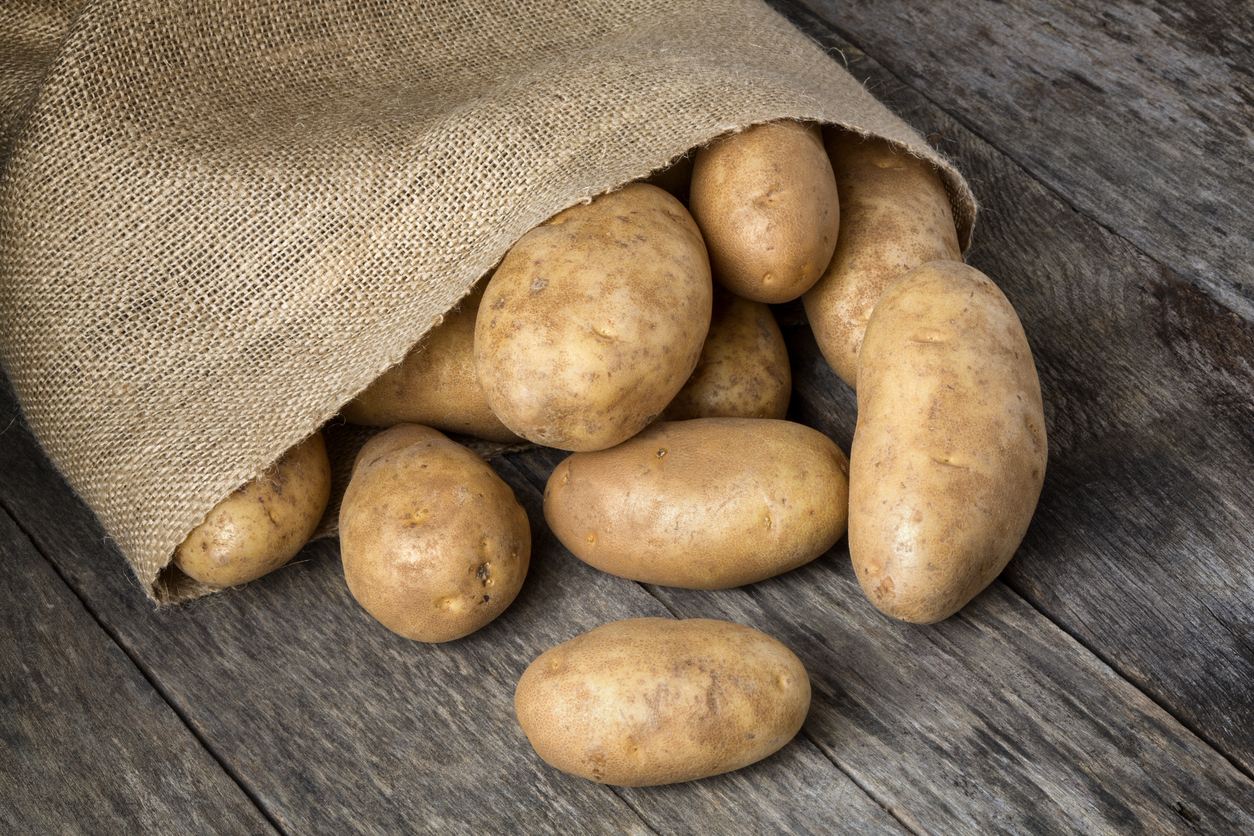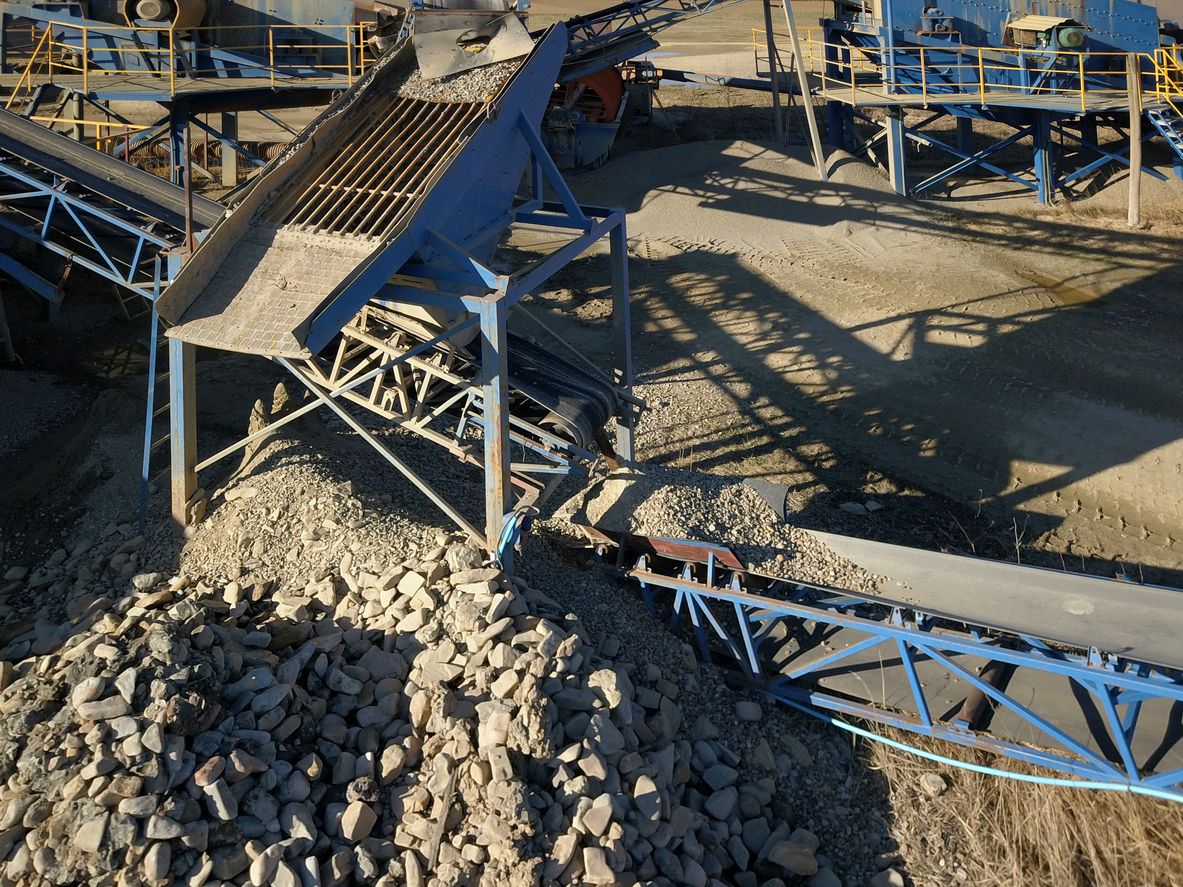Preserve Your Harvest: Innovative Techniques for Processing Potatoes with Wigmore Trading
Preserve Your Harvest: Innovative Techniques for Processing Potatoes with Wigmore Trading
Are you looking for new and exciting ways to make the most out of your potato harvest this season? Look no further! In this blog post, we’ll be exploring innovative techniques for processing potatoes with Wigmore Trading. From dehydrating to freezing, we’ve got all the tips and tricks you need to preserve your harvest in style. So grab your spuds and let’s get started on creating delicious dishes that will last long after the growing season is over!
Introduction
Introduction:
Potatoes are a staple food in many households around the world, and for good reason. They are versatile, filling, and packed with essential vitamins and minerals. However, as anyone who has grown potatoes in their garden knows, they tend to grow in abundance. This can be a blessing or a curse, depending on how you look at it.
On one hand, having an excess of potatoes means you won’t have to worry about running out anytime soon. On the other hand, too much of anything can become overwhelming and lead to food waste if not properly preserved. That’s where innovative techniques for processing potatoes come into play.
At Wigmore Trading, we understand the importance of preserving your harvest effectively. Our company specializes in providing high-quality products and services for agricultural processing needs. In this blog post, we will discuss some innovative techniques that can help you preserve your potato harvest efficiently and make the most out of your crop.
Using Modern Technology for Processing Potatoes:
With advancements in technology, there are now various machines designed specifically for processing potatoes. These machines not only save time but also reduce labor costs while ensuring consistent quality output every time.
One such machine is the potato peeler which takes away the tedious task of manually peeling potatoes by automatically peeling them within minutes! There are also specialized cutters available that can easily slice or dice large quantities of potatoes into desired shapes and sizes without any effort.
Another modern technique gaining popularity is vacuum frying which uses low-temperature cooking to produce crispy chips with less oil content compared to traditional frying methods. This method helps retain nutrients while giving you healthier snacking options.
Preserving Potatoes through Canning:
Canning is a tried-and-tested method that has been used for centuries to preserve fruits and vegetables. It involves sealing cooked or raw food in jars through heat treatment to prevent spoilage caused by microorganisms.
When it comes to preserving potatoes using this method, it is essential to use high-acid varieties and follow proper canning procedures. Properly canned potatoes can last for several years, making it an excellent option for long-term preservation.
Dehydrating Potatoes:
Dehydrating potatoes is another popular method of preservation that involves removing water from the vegetable. This method not only prolongs shelf life but also makes them lightweight and convenient for storage.
There are various ways to dehydrate potatoes, including using a food dehydrator or oven-drying. The end product can be stored in an airtight container and rehydrated when needed, making them perfect for soups, stews, or even as a healthy snack option.
Processing your potato harvest not only ensures efficient use of resources but also helps reduce food waste. With the help of modern technology and traditional preservation methods like canning and dehydrating, you can enjoy your potato crops all year round without any worries about spoilage. Stay tuned for our next blog post where we will discuss more innovative techniques offered by Wigmore Trading!
– Brief overview of potato production in Nigeria
Nigeria is one of the largest producers of potatoes in Africa, with an estimated production of 4.3 million metric tons in 2020 (according to the Food and Agricultural Organization). Potatoes are primarily grown in the highland areas of Jos, Plateau State, and Mambilla Plateau, Taraba State. These regions have favorable climatic conditions for potato cultivation, including cool temperatures and well-drained soils.
Potato production in Nigeria is mainly done by small-scale farmers who cultivate potatoes as a cash crop or for subsistence farming. The majority of these farmers use traditional farming methods and lack access to modern technologies and equipment. As a result, their yields are often low compared to other countries.
The potato varieties grown in Nigeria include Irish potato (Solanum tuberosum), sweet potato (Ipomoea batatas), cassava (Manihot esculenta), yam (Dioscorea spp.), and cocoyam (Colocasia esculenta). However, Irish potato is the most widely cultivated variety due to its high demand in local markets and for processing into various products such as chips, flakes, starch, and flour.
Potato production in Nigeria faces several challenges that affect its overall productivity. One major challenge is poor storage facilities leading to post-harvest losses due to spoilage by pests and diseases. This has led to the development of innovative techniques for processing potatoes to reduce food waste and increase income for farmers.
Wigmore Trading Company has been at the forefront of promoting innovative techniques for processing potatoes in Nigeria through their range of quality agricultural machinery and equipment. These include potato peelers, cutters, slicers, washers, dryers, fryers among others.
Using these machines can significantly increase efficiency in processing potatoes and minimize labor costs while ensuring that the final product meets market standards. For example, Wigmore’s industrial peeling machine can peel up to 1,000 kg of potatoes per hour, reducing the time and effort required for manual peeling.
Additionally, Wigmore Trading has also introduced solar-powered storage facilities specifically designed for potato storage in rural areas. These facilities are cost-effective and can store large quantities of potatoes while maintaining the desired temperature and humidity levels to prevent spoilage.
Potato production in Nigeria has immense potential for growth and improvement with the adoption of innovative techniques for processing and storage. By investing in modern machinery and equipment from Wigmore Trading Company, farmers can increase their yields, reduce post-harvest losses, and ultimately enhance their livelihoods.
– Importance of processing and preserving potatoes
Potatoes are a staple food in many households and for good reason. They are versatile, nutritious, and can be stored for long periods of time. However, to fully reap the benefits of this wonder vegetable, it is important to understand the significance of processing and preserving potatoes.
Processing potatoes involves transforming them into different forms such as mashed, fried, or roasted. This not only adds variety to our meals but also makes them easier to cook and consume. For example, peeling and cutting potatoes into fries before frying them allows for a quicker cooking time and a more appealing appearance on the plate.
Preserving potatoes through various techniques such as canning, freezing or dehydrating ensures that they do not go to waste and can be enjoyed throughout the year. This is especially beneficial during times when fresh produce may not be readily available or affordable.
One major advantage of processing and preserving potatoes is prolonging their shelf life. Freshly harvested potatoes have a limited storage life of about 2-3 months under ideal conditions. By properly processing and preserving them, this period can be extended up to 1 year or more depending on the technique used.
Additionally, processing and preserving potatoes can help reduce food waste. With proper handling and storage techniques, we can prevent spoilage due to rotting or sprouting of excess unprocessed harvests. This not only saves money but also contributes positively towards reducing our carbon footprint by reducing food waste in landfills.
Moreover, processed potato products are convenient options for busy individuals who may not have the time or resources to prepare meals from scratch every day. Pre-cut frozen french fries or canned mashed potatoes are just some examples of how processed potato products provide convenience without compromising on taste.
Furthermore, processing potatoes allows us to add value to our harvests by creating new products that have a longer shelf life compared to fresh produce. These added-value products such as potato chips or crisps bring higher returns in terms of profits for farmers and food businesses.
The importance of processing and preserving potatoes cannot be emphasized enough. It not only adds variety to our meals, but also extends their shelf life, reduces food waste, and provides convenience and added value to our harvests. With innovative techniques offered by Wigmore Trading, we can preserve our harvests for longer periods while enjoying the benefits of this versatile vegetable all year round.
Wigmore Trading: Who are they?
Wigmore Trading is a leading provider of innovative solutions for processing potatoes. The company was established in 1999 and has since gained a reputation as a trusted supplier of high-quality equipment, machinery, and services to the potato industry.
Based in the United Kingdom, Wigmore Trading has a global reach with customers in Europe, Asia, Africa, and North America. Their team of experienced professionals has extensive knowledge and expertise in potato processing technology, making them a go-to source for all things related to potato production.
The company’s primary focus is on providing cutting-edge equipment that helps farmers and food manufacturers preserve their harvests efficiently. They work closely with their clients to understand their specific needs and offer tailored solutions that meet their exact requirements.
One of Wigmore Trading’s key strengths is its ability to stay up-to-date with the latest trends and advancements in potato processing technology. This allows them to constantly evolve and improve their products to better serve their customers’ needs. Additionally, they have formed strategic partnerships with other industry leaders to ensure they always have access to top-of-the-line equipment and resources.
At Wigmore Trading, customer satisfaction is paramount. They are committed to providing exceptional service at every stage of the process – from initial consultation to installation and after-sales support. Their dedicated team works diligently to ensure that each client receives personalized attention and guidance throughout their experience with Wigmore Trading.
In addition to offering top-notch equipment and services, Wigmore Trading also places great emphasis on sustainability. They understand the importance of preserving natural resources while meeting growing demands for food production. As such, they strive to provide eco-friendly solutions that help reduce waste and increase efficiency in potato processing.
Through continuous innovation, exceptional service, and commitment towards sustainable practices, Wigmore Trading has established itself as a leader in the potato processing industry. Their unwavering dedication towards customer satisfaction sets them apart from competitors while ensuring long-term success for both themselves and their clients.
In the next section, we will delve deeper into some of the innovative techniques and machinery offered by Wigmore Trading that can help you preserve your potato harvest effectively.
– History and background of Wigmore Trading
History and Background of Wigmore Trading
Wigmore Trading is a leading supplier of quality machinery and equipment for the agricultural, food processing, and packaging industries. The company was founded in 1994 by Mr. John Smith, who had a vision to provide innovative solutions for efficient potato processing.
The journey of Wigmore Trading began in a small warehouse in London, where Mr. Smith started out by importing and distributing used machinery for the local market. With his vast knowledge and experience in the industry, he quickly gained a reputation for providing reliable and cost-effective equipment.
As demand for high-quality machinery grew, Wigmore Trading expanded its operations globally. Today, the company has offices in Europe, Africa, Asia, and North America. It also has partnerships with renowned manufacturers from all over the world to offer customers a wide range of options to meet their specific needs.
One of the key factors that have contributed to Wigmore Trading’s success is its continuous focus on innovation. The team at Wigmore constantly researches and develops new techniques to improve potato processing methods and make it more efficient and cost-effective.
Over the years, Wigmore has introduced several groundbreaking technologies that have revolutionized potato processing industry standards. These include cutting-edge machines such as slicers, peelers, blanchers, fryers, sorting machines, packaging systems – all designed to handle large quantities while maintaining quality standards.
Moreover, Wigmore Trading believes in building lasting relationships with its customers by offering them exceptional after-sales support services. This includes training programs for operators on how to use the machines effectively as well as prompt technical assistance whenever needed.
With its commitment to excellence and customer satisfaction, it’s no surprise that Wigmore Trading has become a trusted name among farmers, food processors,and packaging companies worldwide.
In conclusion,Wigmore Trading’s history is rooted in its founder’s passion for delivering top-of-the-line solutions for potato processing while keeping pace with advancing technology. With a strong focus on innovation, customer satisfaction, and global presence, Wigmore continues to be a leader in the industry and is dedicated to helping its customers preserve their harvests with efficiency and quality.
– Their involvement in the agricultural industry in Nigeria
Nigeria is the largest producer of potatoes in sub-Saharan Africa, with an estimated production of over 3.5 million tons annually. The agricultural industry plays a significant role in the country’s economy, providing employment to millions and contributing significantly to the nation’s GDP. In this section, we will discuss the involvement of Wigmore Trading in the agricultural industry in Nigeria, specifically in potato processing.
Wigmore Trading has been actively involved in promoting and supporting smallholder farmers in Nigeria for over two decades. They work closely with local farmers to provide them with quality seeds and training on sustainable farming practices, which not only increases their yield but also improves the overall quality of their produce.
One of Wigmore Trading’s primary objectives is to help reduce post-harvest losses among Nigerian farmers by introducing innovative processing techniques. As we all know, potatoes are highly perishable, and without proper handling and preservation methods, a significant portion of the harvest can go to waste. Therefore, Wigmore Trading has been working towards developing affordable and accessible processing solutions for small-scale farmers.
Their involvement in the potato industry goes beyond just providing equipment; they also offer technical support and training programs for farmers on how to operate and maintain these machines effectively. This helps increase efficiency while reducing operational costs for farmers.
In addition to supporting smallholder farmers, Wigmore Trading also works with larger commercial farms that produce potatoes on a large scale. They have successfully assisted these farms in increasing their processing capacity by supplying them with advanced machinery such as potato peelers, slicers, blanchers, fryers, dryers and packaging equipment.
Wigmore Trading’s efforts have had a significant impact on both smallholder farmers and larger commercial farms alike. With improved processing techniques and access to modern machinery, Nigerian farmers can now preserve their harvests more efficiently than ever before. This has not only increased their income but also reduced food loss during storage and transportation.
Furthermore, Wigmore Trading’s involvement in the agricultural industry in Nigeria has also contributed to the diversification of the economy. By promoting potato processing, they have helped create new job opportunities and stimulate economic growth in rural areas.
Wigmore Trading has played a vital role in revolutionizing the potato processing industry in Nigeria. Their commitment to supporting local farmers and promoting sustainable practices has not only improved the quality of potatoes produced but has also had a positive impact on the overall economy of the country.
Techniques for Processing Potatoes
Potatoes are a versatile and delicious vegetable that can be enjoyed in a variety of ways. From mashed potatoes to French fries, there are many different techniques for processing potatoes that can help you preserve your harvest and enjoy the flavor of these tubers all year round. In this section, we will discuss some innovative techniques for processing potatoes with Wigmore Trading.
1. Canning:
Canning is a popular method for preserving potatoes as it allows them to stay fresh for an extended period of time. To can potatoes, you will need to peel and slice them into cubes or wedges before blanching them in boiling water for 5 minutes. Then, pack the cooked potatoes into sterilized jars and fill them with boiling water until they are covered by about an inch. Add salt if desired and then process the jars in a pressure canner according to the manufacturer’s instructions.
2. Freezing:
Freezing is another effective way to preserve your potato harvest without losing any of their nutrients or flavor. To freeze potatoes, start by washing and peeling them before cutting them into small cubes or slices. Blanch the potatoes in boiling water for 3-4 minutes before quickly cooling them in ice-cold water. Drain off any excess moisture and pack the blanched potatoes into freezer-safe bags or containers before placing them in the freezer.
3. Dehydrating:
Dehydrating is a great technique for preserving large amounts of potatoes at once as it does not require much storage space. Start by washing, peeling, and thinly slicing your potatoes before laying them out on dehydrator trays in a single layer. It is important to pre-treat the sliced potatoes with lemon juice or citric acid solution to prevent browning during dehydration. Once dried, store the dehydrated potato slices in an airtight container and rehydrate when ready to use.
4. Fermentation:
Fermenting vegetables, including potatoes, is an ancient preservation technique that not only helps to extend their shelf life but also adds a unique tangy flavor. To ferment potatoes, wash and peel them before slicing them into thin rounds or shredding them. Then add salt and any desired seasonings before packing the potato slices tightly into a clean jar. Leave about an inch of headspace at the top and seal the jar with a lid. The fermentation process takes about 1-2 weeks, after which you can store the fermented potatoes in the fridge for up to 6 months.
There are many innovative techniques for processing potatoes that can help you preserve your harvest and enjoy them throughout the year. Whether you choose to can, freeze, dehydrate or ferment your potatoes, Wigmore Trading has all the necessary equipment and supplies to make your potato processing experience a success!
– Washing and cleaning potatoes
Washing and cleaning potatoes is an essential step in preserving your harvest. Properly cleaning and preparing your potatoes not only ensures their freshness, but also helps to remove any dirt or bacteria that could potentially contaminate them.
The first step in washing and cleaning potatoes is to gather all the necessary tools. You will need a large bowl or sink filled with cold water, a clean scrub brush, and a sharp knife. It is important to use cold water as hot water can cause the potatoes to start sprouting prematurely.
Start by placing the potatoes in the bowl or sink of cold water. This will help loosen any dirt or debris on the surface of the potatoes. Gently rub each potato with your hands to remove any loose dirt. For tougher spots, use a scrub brush to gently scrub away any remaining dirt.
Once all visible dirt has been removed, it is time to inspect each potato for imperfections. Look for any bruises, cuts or blemishes on the skin of the potato. These areas can harbor bacteria and should be cut away before cooking or storing.
Next, using a sharp knife, trim off any green spots from the skin of the potato. Green spots are caused by exposure to light and can contain toxins that are harmful if ingested in large quantities.
After trimming off any imperfections, rinse each potato again under cold running water to ensure all dirt and debris has been removed.
If you plan on storing your potatoes for an extended period of time, it is important to dry them thoroughly after washing. Excess moisture can lead to rotting while in storage. Place washed potatoes onto a clean towel and pat dry with another towel until completely dry.
Store cleaned potatoes in a cool dark place such as a pantry or cellar where they can remain undisturbed until ready for use.
By following these steps for washing and cleaning your harvested potatoes, you can ensure that they remain fresh and safe for consumption for months to come. Taking the time to properly clean and prepare your potatoes is an important step in preserving your harvest and ensuring its quality.
– Cutting, slicing, and dicing techniques
Cutting, slicing, and dicing are fundamental techniques for processing potatoes. These techniques are used to transform whole potatoes into smaller pieces, making them more versatile and easier to cook with. In this section, we will explore different cutting, slicing, and dicing techniques that can be used when preserving your potato harvest.
1. Basic Cutting Techniques
The most basic cutting technique is the straight cut or the “classic” cut. This involves cutting the potato into evenly sized cubes or chunks. The size of the cubes can vary depending on your preference, but it is important to ensure that all pieces are similar in size so they cook evenly.
Another popular cutting technique is the julienne cut, which results in long thin strips of potatoes. This type of cut is commonly used for French fries or hash browns. To achieve a perfect julienne cut, start by trimming off both ends of the potato to create flat surfaces. Then slice the potato lengthwise into 1/4-inch thick slices before cutting them into thin matchsticks.
2. Slicing Techniques
Slicing potatoes creates thin round discs that are perfect for dishes like scalloped potatoes or homemade chips. To achieve consistent thickness in your slices, it is recommended to use a mandoline slicer which allows you to adjust the thickness setting as desired.
For Hasselback-style potatoes (thinly sliced but still connected at the bottom), place two chopsticks on either side of a whole potato and make parallel cuts about two-thirds down without slicing through completely. This will give you perfectly spaced slices that hold together while cooking.
3. Dicing Techniques
Dicing refers to cutting potatoes into small cube-shaped pieces typically used in stews or soups. A common method for dicing potatoes is called brunoise – first slice peeled and trimmed potatoes into 1/4-inch thick slices then stack them together and make 1/4-inch crosswise cuts resulting in tiny cubes.
For a slightly larger dice, the medium-sized dicing technique works best. Begin by cutting a peeled and trimmed potato into 1/2-inch thick slices then stack them together and make 1/2-inch crosswise cuts.
4. Tips for Cutting Potatoes Safely
When using knives to cut potatoes, always remember to exercise caution and use proper techniques to avoid accidents. It is important to have a stable surface when cutting, so place a dampened cloth under your cutting board to prevent it from sliding around. Also, make sure your knife is sharp as dull knives require more force which can be dangerous.
Mastering different cutting, slicing, and dicing techniques can transform your potato harvest into an array of delicious dishes. With the right tools and techniques, you can easily preserve your potatoes for future use while also adding variety to your meals. So go ahead and experiment with these techniques to elevate your cooking game!
– Blanching and freezing methods
Blanching and freezing are two popular methods for preserving potatoes that have been harvested. These techniques not only help to prolong the shelf life of potatoes, but they also retain their flavor and nutritional value. In this section, we will discuss how blanching and freezing can be effectively used to process potatoes with the help of Wigmore Trading.
Blanching is a process in which vegetables are briefly cooked in boiling water or steam and then immediately cooled down by immersing them in ice water. This method is commonly used for preserving potatoes as it helps to deactivate enzymes that can cause discoloration and spoilage. To blanch potatoes, start by washing them thoroughly and cutting them into desired shapes or sizes. Then bring a large pot of water to a rolling boil and add the potato pieces.
The blanching time will depend on the size of the potato pieces, but it usually takes about 3-5 minutes for small chunks or slices, and 6-8 minutes for larger chunks or whole potatoes. Once done, remove the potatoes from boiling water using a slotted spoon and immediately plunge them into an ice bath for around 5 minutes. This step halts the cooking process and prevents overcooking.
After blanching, drain the excess water from the potatoes and pat them dry with a paper towel. Now you can either freeze them as they are or proceed with seasoning before freezing. For seasoning, toss the blanched potato pieces with your preferred herbs or spices before placing them in freezer-safe bags or containers.
When it comes to freezing potatoes, there are two options – flash-freezing individual potato pieces first before storing them together in bags/containers OR directly freezing seasoned batches of potatoes. For flash-freezing, spread out individual potato pieces on a baking sheet lined with parchment paper so that they do not stick together while freezing. Once frozen solid (usually within an hour), transfer these pieces into an airtight container or bag and return them to the freezer.
Alternatively, you can directly freeze seasoned batches of potatoes in suitable containers. However, it is important to leave some headspace for expansion during freezing. Properly blanched and frozen potatoes can last up to 10-12 months in the freezer without compromising their quality.
Blanching and freezing are simple yet effective methods for preserving harvested potatoes. With Wigmore Trading’s high-quality potato processing equipment, you can efficiently blanch and freeze large quantities of potatoes with ease. So why let your hard work go to waste? Preserve your harvest using these innovative techniques and enjoy fresh-tasting potatoes all year round!
– Dehydration techniques
Dehydration is a popular technique for preserving potatoes as it effectively removes the moisture from the vegetable, making it less prone to spoilage. This method also helps to concentrate the flavors and nutrients of potatoes, making them perfect for long-term storage without compromising on taste or nutrition.
The first step in dehydrating potatoes is to wash and peel them thoroughly. It’s essential to remove any dirt or debris that may be present on the surface of the potatoes before beginning the dehydration process. Once clean, you can choose to either slice or dice your potatoes into small pieces for quicker dehydration. However, if you prefer larger chunks, make sure they are all evenly sized for consistent drying.
One of the most common methods of dehydrating potatoes is by using an electric dehydrator. These machines come with multiple trays that allow for efficient drying of a large quantity of food at once. To use an electric dehydrator, simply spread out your potato slices or cubes in a single layer on each tray and set it at approximately 120-130°F (50-55°C) temperature. The exact time required will depend on the thickness of your potato pieces and humidity levels in your area.
Another popular option for dehydrating potatoes is by using an oven. This method is ideal if you don’t have access to a dehydrator but still want to preserve your harvest efficiently. Begin by preheating your oven at its lowest setting (around 170°F/75°C). Next, place your potato slices or cubes on a baking sheet lined with parchment paper and bake them until completely dry and crispy (usually takes around 6-8 hours).
For those who prefer more traditional methods, sun-drying is another excellent way to preserve potatoes without any expensive equipment. To do this, simply slice or dice your potatoes and spread them out on a clean cloth under direct sunlight until they become brittle and hard (this can take up to a few days depending on the intensity of sunlight).
Once your potatoes are fully dehydrated, they can be stored in an airtight container for up to a year. To rehydrate them, simply soak them in water or broth for about 20 minutes before using them in your favorite recipes.
Dehydration is an effective and economical way to preserve your potato harvest for an extended period. Whether you choose to use an electric dehydrator, oven, or sun-drying method, make sure to follow proper food safety guidelines and store your dehydrated potatoes correctly for long-lasting and delicious results.
Innovative Preservation Methods with Wigmore Trading
Innovative Preservation Methods with Wigmore Trading
When it comes to preserving your potato harvest, traditional methods such as canning or freezing may come to mind. However, at Wigmore Trading, we offer innovative techniques that can help you preserve your potatoes in a more efficient and sustainable way.
Dehydration is one of the most effective and popular methods for preserving potatoes. This process involves removing the moisture from the potatoes, making them less susceptible to spoilage. At Wigmore Trading, we offer state-of-the-art dehydration equipment that uses low-temperature drying technology to retain the nutritional value and flavor of the potatoes while extending their shelf life. Our equipment also allows for customizing the size and texture of the dehydrated potatoes according to your preference.
Another innovative preservation method offered by Wigmore Trading is freeze-drying. This technique involves freezing the potatoes and then placing them in a vacuum chamber where ice crystals are directly converted into vapor without melting back into water. The end result is a lightweight, nutrient-rich product that can be rehydrated easily when needed. Freeze-dried potatoes have a longer shelf life compared to other preservation methods and are perfect for camping trips or emergency food supplies.
Wigmore Trading also offers cutting-edge technology for fermenting potatoes. Fermentation is a natural preservation process that not only extends the shelf life of your harvest but also enhances its nutritional value by breaking down starches into simpler sugars that are easier to digest. Our fermentation tanks provide optimal conditions for this process, ensuring consistent results every time.
For those looking for healthier alternatives to deep-fried chips, our company offers air-drying equipment that produces crispy potato chips with little or no oil required during processing. Air-drying removes excess moisture from sliced potatoes using heated air circulation, resulting in a light and crunchy snack without compromising on taste.
Additionally, Wigmore Trading offers specialized packaging solutions specifically designed for preserving potatoes using modified atmosphere packaging (MAP) technology. This method involves modifying the air composition inside the packaging to reduce spoilage and maintain the freshness of the potatoes for a longer period.
Wigmore Trading offers a range of innovative preservation methods that not only add value to your potato harvest but also contribute to sustainable food practices. With our cutting-edge equipment and expertise, you can preserve your potatoes in various forms without compromising on taste or nutritional value. Contact us today to learn more about our innovative preservation solutions.








Comments are closed.